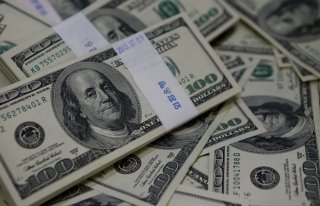Americans Have Stolen $300 Million in Stimulus Payment Scams
Scammers are reportedly using personal information to convince stimulus payment recipients that they are affiliated with a government agency or even with that person’s employer.
Here's What You Need to Remember: Experts encourage Americans to be cautious in trusting others with banking information, as they could be associated with a massive stimulus scam.
More than $300 million worth of stimulus payments have been stolen—a figure that’s likely to jump as the third round of relief continues to be pumped out, according to the Federal Trade Commission (FTC).
The FTC said that stimulus scammers are using people’s personal information to get access to the direct payments.
“These scams around COVID stimulus checks, coronavirus, are being undertaken by hackers and scammers in a more sophisticated way because they have easy, cheap access to more of our personal information,” Rob Shavell, a data privacy security expert, told NBC-affiliate WCNC Charlotte.
Shavell added, “Unfortunately, it's just too easy to google somebody's personal information now, buy it for 99 cents from a data broker, and go do something with it. I can find out somebody's date of birth, I can find out their company, I can find out their mother's maiden name, their employer, their past employer, their past addresses, email and phone.”
Scammers are reportedly using personal information to convince stimulus payment recipients that they are affiliated with a government agency or even with that person’s employer. Some have offered recipients help with depositing the direct payments, in which they would then steal the federal funds.
The FTC claimed that scammers have stolen more than $300 million through this method, but Shavell thinks the figure falls short of how much has actually been seized.
“That is actually just the people that complain by filing a report to the FTC,” Shavell told the network. “Our estimate is the amount of actual loss is probably 10 times that. It's probably $3 billion, not $300 million.”
Shavell went on to say, “You can create a better scam when you have better data. The more personal it is and it sounds, the more believable it can be.”
Scammers get access to the personal information from data brokers, who gather and sell the information to businesses, advertisers and even individual hackers.
Data brokers, however, not only collect the information from online searches and internet activity, but also from state entities.
Just last year, the North Carolina Department of Motor Vehicles earned almost $41.5 million by selling millions of drivers’ license information to more than 20 third-party companies and 230,000 individuals.
“It is unbelievable that all of these institutions and DMVs across every state are able to sell our data, make money from it without us having a say in it,” Shavell said. “That's why we need a combination of legislation and technology to enable that legislation and make it easier for people to control their data because it's our data. It's not somebody else's.”
Experts encourage Americans to be cautious in trusting others with banking information, as they could be associated with a massive stimulus scam.
“The new round of stimulus, we want people to be very careful,” Shavell said.
Rachel Bucchino is a reporter at the National Interest. Her work has appeared in The Washington Post, U.S. News & World Report and The Hill. This article first appeared earlier this year.
Image: Reuters.

